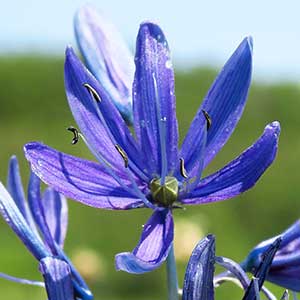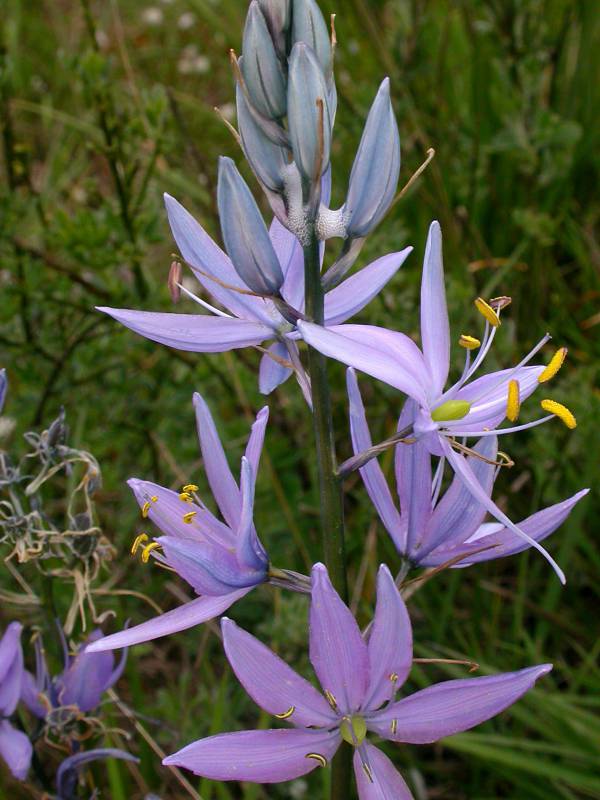Camassia quamash
Camassia quamash ssp. azurea
common camas
blue camas, prairie camas
Leaves several, all basal, 8-20 mm. broad, considerably shorter than the scape.
Inflorescence a raceme, many-flowered, 5-30 cm. long;
pedicels 10-20 mm. long, spreading, arched or ascending in flower, incurved-erect in fruit;
flowers pale to deep blue or violet, somewhat irregular;
tepals 6, distinct, 15-35 mm. long and 2-8 mm. broad, narrowed at base, lowest segment curved outward and downward away from the others, all withering separately and exposing the ovary;
stamens 6, anthers yellow or blue, style slender, stigmas 3.
Capsule ovoid, 3-celled, 1-2.5 cm. long.
Camassia quamash
Camassia quamash ssp. azurea
Widely distributed on both sides of the Cascades crest in Washington; British Columbia to California, east to Montana and Utah.
Endemic to the lowlands west of the Cascades crest in Washington, including the Puget Trough from Pierce County, Washington, to Grays Harbor County, and on both sides of the Olympic Mountains.



